Our work
EDRi is the biggest European network defending rights and freedoms online. We work to to challenge private and state actors who abuse their power to control or manipulate the public. We do so by advocating for robust and enforced laws, informing and mobilising people, promoting a healthy and accountable technology market, and building a movement of organisations and individuals committed to digital rights and freedoms in a connected world.
Filter resources
-
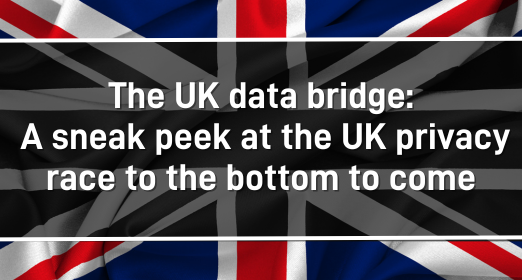
The UK data bridge: a sneak peek at the UK privacy race to the bottom to come
The UK extension to the EU – US Transatlantic Data Privacy Framework will come into force on 12 October. Its adoption provides a sneak peek at the future of UK international data transfers, and the erosion of essential guarantees against surveillance measures that the UK data protection reform would bring.
Read more
-
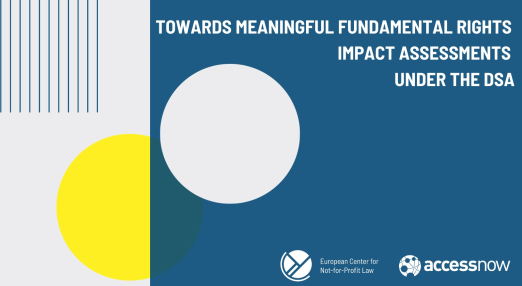
How tech corporations like Google, Meta and Amazon should assess impacts on our rights
A new policy paper by EDRi members ECNL and Access Now outlines key recommendations on how to make fundamental rights impact assessments meaningful under the European Union's Digital Services Act (DSA).
Read more
-

Will the European Parliament walk the talk and protect journalists?
In a democratic society, where we rely on journalists to act as public watchdogs, we cannot have them worried about becoming a target of government-sanctioned spying.
Read more
-
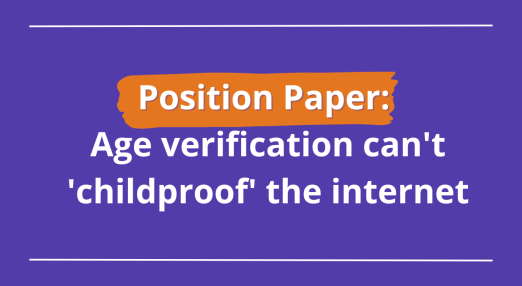
Position Paper: Age verification can’t ‘childproof’ the internet
EDRi has published its policy paper on age verification to shed light on the risks of the widespread use of age verification and to chart out possible alternative solutions.
Read more
-
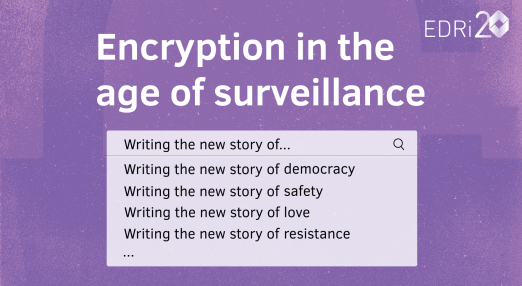
Event summary: Encryption in the age of surveillance
The EDRi-organised event on encryption, surveillance, and privacy brought together key policymakers, academics, activists and members of the press to build a better understanding of why encryption is important for people and democracy.
Read more
-
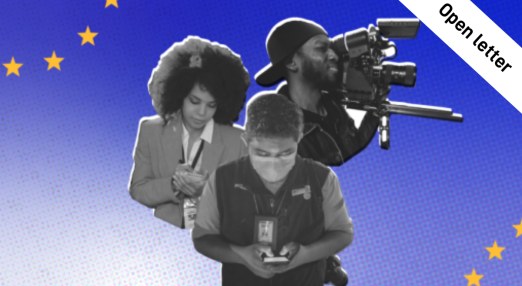
Open Letter: European Parliament must protect journalists and ban spyware in the European Media Freedom Act
As the European Parliament gets set to vote on the European Media Freedom Act (EMFA) next week, 80 civil society and journalists’ associations are calling on Members of European Parliament (MEPs) to ensure meaningful protection for journalists in the regulation by including a total ban on spyware.
Read more
-

Potential loopholes in the AI Act could allow use of intrusive tech on ‘national security’ grounds
Both the European Union (EU) and the Council of Europe (COE) negotiations are considering excluding AI systems designed, developed and used for military purposes, matters of national defence and national security from the scope of their final regulatory frameworks. If this indeed happens, we will have a huge regulatory gap regarding such systems.
Read more
-

Polish Senate calls Pegasus illegal and demands scrutiny over secret services
The Senate of Poland concluded its investigation on the use of Pegasus by Polish secret services to spy on ia. opposition politicians and unapologetic public persons. They declared that Pegasus should be considered illegal in Poland and the secret services should be put under strict and independent scrutiny. Doubts also arose around the fairness of Poland’s 2019 elections.
Read more
-

Czech police use facial recognition system, IuRe finds out details
EDRi member Iuridicum Remedium have details on the Czech police’s illegal use of a facial recognition system. The country’s data protection authorities were not consulted in advance on the system, which is being used for biometric identification
Read more
-

EDRi-gram, 27 September 2023
The weather might be cooling off but the digital rights world is heating up with activity. Civil society continues to fight against dystopian surveillance technology. More than 85 organisations have called on EU governments to say no to the CSA Regulation until it fully protects online rights, freedoms, and security. Over 115 civil society organisations are urging EU lawmakers to regulate the use of AI technology for harmful and discriminatory surveillance by law enforcement. In Czech Republic, EDRi member Iuridicum Remedium have details on the Czech police’s illegal use of a facial recognition system.
Read more
-

Are we about to lose the last pillar of our digital security?
Breaking encryption and criminalising its use will not resolve the deep societal issues we are facing. Instead, governments should protect and promote the very tool that ensures our digital security.
Read more
-
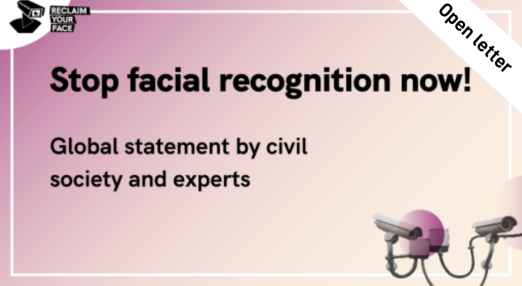
Global civil society and experts statement: Stop facial recognition surveillance now
198 civil society groups and eminent experts are calling on governments to stop the use of facial recognition surveillance by police, authorities and private companies.
Read more
